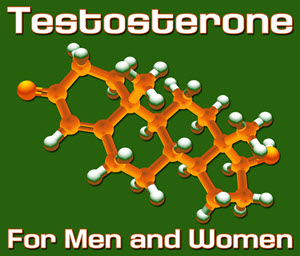Introduction
Vasectomy is a widely accepted method of permanent contraception among American males. While the procedure is known for its effectiveness in preventing pregnancy, the long-term effects on testicular function, hormonal balance, and potential fertility restoration are subjects of ongoing research and discussion. This article delves into the latest findings on these aspects, providing valuable insights for men considering or having undergone vasectomy.
Understanding Vasectomy and Its Immediate Effects
Vasectomy involves the surgical cutting and sealing of the vas deferens, the tubes that transport sperm from the testicles to the urethra. This procedure effectively prevents sperm from mixing with semen, thus serving as a reliable form of birth control. Immediately following the procedure, men may experience minor discomfort and swelling, but these symptoms typically resolve within a few weeks. The immediate effect on fertility is clear: sperm are no longer present in ejaculate, preventing conception.
Long-Term Impact on Testicular Function
Research indicates that vasectomy does not significantly alter the fundamental functions of the testes. The production of testosterone, the primary male sex hormone, remains unaffected. This is crucial as testosterone plays a vital role in maintaining muscle mass, bone density, and overall male health. Studies have consistently shown that testosterone levels in men post-vasectomy are comparable to those in men who have not undergone the procedure.
However, there is a phenomenon known as "post-vasectomy pain syndrome" that affects a small percentage of men. This condition can lead to chronic pain in the testicular area, which may be linked to increased pressure within the epididymis due to the blockage of sperm flow. While this does not directly impact hormonal levels, it can affect the quality of life and may require medical intervention.
Hormonal Balance and Vasectomy
The hormonal balance in men post-vasectomy remains a topic of interest. As mentioned, testosterone levels are generally stable, but some studies have explored the potential impact on other hormones. For instance, research has looked into the levels of follicle-stimulating hormone (FSH) and luteinizing hormone (LH), which are involved in sperm production and testosterone regulation. The consensus is that vasectomy does not lead to significant changes in these hormone levels, reinforcing the safety of the procedure in terms of hormonal health.
Fertility Outcomes and Reversal Possibilities
One of the most frequently asked questions by men considering vasectomy is whether the procedure can be reversed. Vasectomy reversal, or vasovasostomy, is a surgical procedure that reconnects the vas deferens, potentially restoring fertility. Success rates for reversal vary, typically ranging from 40% to 90%, depending on factors such as the time elapsed since the vasectomy and the skill of the surgeon.
It is important to note that even with successful reversal, the return of fertility is not guaranteed. The longer the duration since the vasectomy, the lower the likelihood of achieving pregnancy. Additionally, the quality of sperm may be affected, and men should be aware that multiple factors can influence the outcome of a reversal procedure.
Conclusion
In conclusion, vasectomy remains a safe and effective method of permanent contraception for American males. The procedure does not significantly impact testicular function or hormonal balance, with testosterone levels remaining stable. While post-vasectomy pain syndrome is a potential concern, it affects only a small percentage of men. For those considering fertility restoration, vasectomy reversal is an option, though success rates vary and depend on several factors.
Understanding these long-term outcomes is essential for men making informed decisions about their reproductive health. As research continues to evolve, it is hoped that further insights will enhance our understanding of the effects of vasectomy on male health and fertility.
Contact Us Today For A Free Consultation

- Navigating Life After Testicular Cancer: Health, Fertility, and Well-being for Survivors [Last Updated On: March 8th, 2025] [Originally Added On: March 8th, 2025]
- Stress and Testicular Health: Impacts and Management Strategies for American Men [Last Updated On: March 17th, 2025] [Originally Added On: March 17th, 2025]
- Regular Check-ups: Vital for American Men's Testicular Health and Early Issue Detection [Last Updated On: March 17th, 2025] [Originally Added On: March 17th, 2025]
- Testicular and Prostate Health: Understanding the Vital Connection for Male Wellness [Last Updated On: March 17th, 2025] [Originally Added On: March 17th, 2025]
- Exercise and Its Vital Role in Enhancing Testicular Health in American Males [Last Updated On: March 19th, 2025] [Originally Added On: March 19th, 2025]
- Testicular Health and Hormone Replacement Therapy: A Comprehensive Guide for American Men [Last Updated On: March 20th, 2025] [Originally Added On: March 20th, 2025]
- Economic Burden of Testicular Cancer Treatment on American Males: Direct and Indirect Costs [Last Updated On: March 20th, 2025] [Originally Added On: March 20th, 2025]
- Understanding Testicular Pain: Causes, Diagnosis, and Treatment Options for American Males [Last Updated On: March 20th, 2025] [Originally Added On: March 20th, 2025]
- Testicular Health and Mental Well-being: A Holistic Approach for Men [Last Updated On: March 20th, 2025] [Originally Added On: March 20th, 2025]
- Understanding Testicular Health: Causes, Diagnosis, and Treatment Options for Infertility [Last Updated On: March 20th, 2025] [Originally Added On: March 20th, 2025]
- Smoking's Impact on Testicular Health in American Males: Risks and Prevention [Last Updated On: March 20th, 2025] [Originally Added On: March 20th, 2025]
- Ultrasound: A Key Tool for Diagnosing Testicular Conditions in American Males [Last Updated On: March 21st, 2025] [Originally Added On: March 21st, 2025]
- Educating Young Men on Testicular Health: Importance, Conditions, and Early Detection [Last Updated On: March 21st, 2025] [Originally Added On: March 21st, 2025]
- Diabetes Impact on Testicular Health: Insights for American Men [Last Updated On: March 21st, 2025] [Originally Added On: March 21st, 2025]
- Autoimmune Disorders and Testicular Health: Impacts and Management for American Men [Last Updated On: March 23rd, 2025] [Originally Added On: March 23rd, 2025]
- Testicular Cancer Screening: Guidelines and Importance for Early Detection in Men [Last Updated On: March 23rd, 2025] [Originally Added On: March 23rd, 2025]
- Nutrition and Lifestyle: Keys to American Men's Testicular Health [Last Updated On: March 23rd, 2025] [Originally Added On: March 23rd, 2025]
- Sleep's Vital Role in American Males' Testicular Health and Hormonal Balance [Last Updated On: March 24th, 2025] [Originally Added On: March 24th, 2025]
- Endocrine Disruptors' Impact on Testicular Health: Risks and Mitigation for American Males [Last Updated On: March 24th, 2025] [Originally Added On: March 24th, 2025]
- Testicular Health's Impact on Cardiovascular Disease in American Men: A Holistic View [Last Updated On: March 24th, 2025] [Originally Added On: March 24th, 2025]
- Alcohol's Impact on Testicular Health: Risks and Mitigation Strategies for American Men [Last Updated On: March 24th, 2025] [Originally Added On: March 24th, 2025]
- Environmental Threats to Testicular Health: A Call for American Male Action [Last Updated On: March 25th, 2025] [Originally Added On: March 25th, 2025]
- Breaking Barriers: Enhancing Testicular and Mental Health Awareness in American Males [Last Updated On: March 25th, 2025] [Originally Added On: March 25th, 2025]
- Overcoming Psychological Barriers to Testicular Health Care in American Men [Last Updated On: March 25th, 2025] [Originally Added On: March 25th, 2025]
- Public Health Campaigns Boost Testicular Health Awareness Among American Men [Last Updated On: March 25th, 2025] [Originally Added On: March 25th, 2025]
- Breaking Silence: Enhancing Testicular Health and Mental Well-being in American Men [Last Updated On: March 25th, 2025] [Originally Added On: March 25th, 2025]
- Antioxidants: Key to Enhancing Testicular Health and Fertility in American Men [Last Updated On: March 25th, 2025] [Originally Added On: March 25th, 2025]
- Understanding Testicular Health and Reproductive Rights for American Men [Last Updated On: March 25th, 2025] [Originally Added On: March 25th, 2025]
- Testicular Health and Immune System: A Vital Connection for American Males [Last Updated On: March 25th, 2025] [Originally Added On: March 25th, 2025]
- Anabolic Steroids' Impact on Testicular Health and Fertility in American Men [Last Updated On: March 25th, 2025] [Originally Added On: March 25th, 2025]
- Socioeconomic Factors Impacting Testicular Health Care Access in American Males [Last Updated On: March 25th, 2025] [Originally Added On: March 25th, 2025]
- Telemedicine Revolutionizes Testicular Health Services for American Men [Last Updated On: March 25th, 2025] [Originally Added On: March 25th, 2025]
- Testicular Health: Vital for Men's Well-being and Chronic Disease Prevention [Last Updated On: March 26th, 2025] [Originally Added On: March 26th, 2025]
- Vitamins D, C, E, Folate Boost Testicular Health in American Men [Last Updated On: March 26th, 2025] [Originally Added On: March 26th, 2025]
- Chemotherapy's Impact on Testicular Health and Fertility in American Male Cancer Survivors [Last Updated On: March 26th, 2025] [Originally Added On: March 26th, 2025]
- Lifestyle Diseases and Testicular Health: A Guide for American Men [Last Updated On: March 26th, 2025] [Originally Added On: March 26th, 2025]
- Community Initiatives Boost Testicular Health Awareness in American Males [Last Updated On: March 26th, 2025] [Originally Added On: March 26th, 2025]
- Occupational Hazards and Testicular Health: Risks, Prevention, and Screening for American Workers [Last Updated On: March 26th, 2025] [Originally Added On: March 26th, 2025]
- Radiation Therapy's Impact on Testicular Health: Risks, Management, and Future Hope [Last Updated On: March 26th, 2025] [Originally Added On: March 26th, 2025]
- Genetic Counseling: A Vital Tool in Testicular Cancer Prevention for American Males [Last Updated On: March 27th, 2025] [Originally Added On: March 27th, 2025]
- Testicular Health and Aging: Hormonal Changes, Impacts, and Treatments for American Men [Last Updated On: March 27th, 2025] [Originally Added On: March 27th, 2025]
- Viral Infections and Testicular Health: Impacts and Prevention for American Males [Last Updated On: March 27th, 2025] [Originally Added On: March 27th, 2025]
- Understanding Testicular Health: Impacts on American Men's Psychology and Body Image [Last Updated On: March 27th, 2025] [Originally Added On: March 27th, 2025]
- Testicular Health and Fertility Preservation: A Comprehensive Guide for American Males [Last Updated On: March 27th, 2025] [Originally Added On: March 27th, 2025]
- Heat Exposure Risks to Testicular Health in American Men: Impacts and Mitigation [Last Updated On: March 27th, 2025] [Originally Added On: March 27th, 2025]
- Illicit Drugs' Impact on Testicular Health in American Men: Risks and Prevention [Last Updated On: March 28th, 2025] [Originally Added On: March 28th, 2025]
- Exercise Boosts Testicular Health: Benefits for American Men [Last Updated On: March 28th, 2025] [Originally Added On: March 28th, 2025]
- Modern Lifestyles and Testicular Health: Risks and Preventive Strategies for American Men [Last Updated On: March 28th, 2025] [Originally Added On: March 28th, 2025]
- Managing Chronic Testicular Pain: Strategies for American Men's Health [Last Updated On: March 29th, 2025] [Originally Added On: March 29th, 2025]
- Testicular Health and Cancer Survivorship: Detection, Treatment, and Long-term Care [Last Updated On: March 29th, 2025] [Originally Added On: March 29th, 2025]
- Enhancing Testicular Health Education for American Males: Gaps and Strategies [Last Updated On: March 30th, 2025] [Originally Added On: March 30th, 2025]
- Essential Guide to Testicular Health for American Males: Functions, Conditions, and Care [Last Updated On: March 30th, 2025] [Originally Added On: March 30th, 2025]
- Testicular Cancer: Understanding, Support Groups, and Recovery Benefits [Last Updated On: March 31st, 2025] [Originally Added On: March 31st, 2025]
- Antibiotics' Impact on Testicular Health: Insights for American Men's Reproductive Wellness [Last Updated On: April 1st, 2025] [Originally Added On: April 1st, 2025]
- Herbal Supplements for Testicular Health: Benefits and Considerations for American Men [Last Updated On: April 2nd, 2025] [Originally Added On: April 2nd, 2025]
- Testicular Health: Vital for Male Wellness and Mental Resilience [Last Updated On: April 3rd, 2025] [Originally Added On: April 3rd, 2025]
- Testicular Health: Advances in Cancer Treatment, Fertility, and Hormonal Therapies for American Males [Last Updated On: April 5th, 2025] [Originally Added On: April 5th, 2025]
- Mental Health Professionals' Vital Role in American Men's Testicular Health Care [Last Updated On: April 6th, 2025] [Originally Added On: April 6th, 2025]
- Environmental Policies Crucial for Protecting American Male Testicular Health [Last Updated On: April 7th, 2025] [Originally Added On: April 7th, 2025]
- Pesticide Exposure and Its Impact on Testicular Health in American Men [Last Updated On: April 7th, 2025] [Originally Added On: April 7th, 2025]
- Enhancing Testicular Health Awareness and Care in American Males: Strategies and Initiatives [Last Updated On: April 8th, 2025] [Originally Added On: April 8th, 2025]
- Heavy Metals and Testicular Health: Risks and Prevention for American Men [Last Updated On: April 10th, 2025] [Originally Added On: April 10th, 2025]
- Physical Therapy's Role in Enhancing Testicular Health for American Men [Last Updated On: April 10th, 2025] [Originally Added On: April 10th, 2025]
- Plastics and Testicular Health: Risks and Reduction Strategies for American Men [Last Updated On: April 11th, 2025] [Originally Added On: April 11th, 2025]
- Empowering American Males: Understanding and Managing Testicular Health [Last Updated On: April 12th, 2025] [Originally Added On: April 12th, 2025]
- Testicular Health: Importance, Conditions, and Policy Impact on American Males [Last Updated On: April 12th, 2025] [Originally Added On: April 12th, 2025]
- Community Health Workers: Enhancing Testicular Health Education in American Men [Last Updated On: April 13th, 2025] [Originally Added On: April 13th, 2025]
- Promoting Testicular Health in Workplace Wellness Programs: A Vital Initiative for Men [Last Updated On: April 13th, 2025] [Originally Added On: April 13th, 2025]
- Educational Campaigns Crucial for Testicular Cancer Awareness Among American Men [Last Updated On: April 15th, 2025] [Originally Added On: April 15th, 2025]
- Promoting Testicular Health and Mental Well-being in American Males: A Call to Action [Last Updated On: April 15th, 2025] [Originally Added On: April 15th, 2025]
- Air Pollution's Impact on Testicular Health in American Men: A Growing Concern [Last Updated On: April 16th, 2025] [Originally Added On: April 16th, 2025]
- Integrating Testicular and Mental Health Services for Holistic Male Wellness [Last Updated On: April 17th, 2025] [Originally Added On: April 17th, 2025]
- Nutrition and Lifestyle: Keys to Enhancing Testicular Health in American Males [Last Updated On: April 18th, 2025] [Originally Added On: April 18th, 2025]
- Water Contaminants' Impact on Testicular Health in American Men: A Critical Analysis [Last Updated On: April 18th, 2025] [Originally Added On: April 18th, 2025]
- Testicular Health: Function, Conditions, and Proactive Management for American Males [Last Updated On: April 18th, 2025] [Originally Added On: April 18th, 2025]
- Enhancing Testicular Health: Advocacy, Policy, and Awareness Strategies for American Males [Last Updated On: April 19th, 2025] [Originally Added On: April 19th, 2025]
- Genetic Testing: A Key to Managing Testicular Health in American Men [Last Updated On: April 19th, 2025] [Originally Added On: April 19th, 2025]
- Exercise Benefits for Testicular Health: Enhancing Male Wellness Through Physical Activity [Last Updated On: April 20th, 2025] [Originally Added On: April 20th, 2025]
- Dietary Impact on Testicular Health: Antioxidants and Omega-3s Boost Function [Last Updated On: April 22nd, 2025] [Originally Added On: April 22nd, 2025]
- Advancements in Testicular Prostheses: Enhancing Life Post-Orchiectomy for American Males [Last Updated On: April 22nd, 2025] [Originally Added On: April 22nd, 2025]
Word Count: 592




















